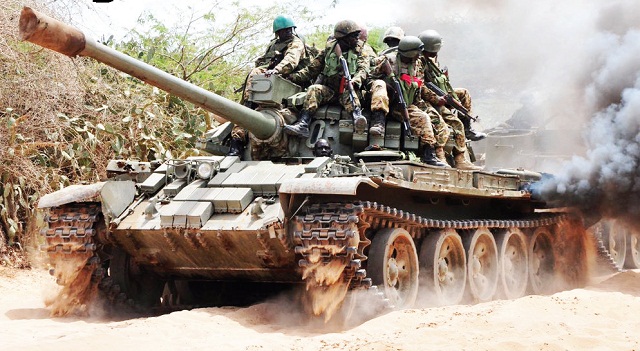By NANGAYI GUYSON
Kampala, Uganda- After a year marked by big political events, Ugandans greeted the year 2021 with fears of political turmoil ahead, owing to general elections scheduled for 14 January 2021 to elect the President and Parliament. President Yoweri Museveni, the veteran dictator, was pronounced the winner of the election, which was marked by outbreaks of violence and a violent crackdown on opposition gatherings during the campaigning period.
More than 50 people were killed as a result of harsh policing tactics, including the use of live ammunition fired without notice, and at least 20 more died in incidents related to the election riots.

Hundreds of individuals have gone missing in the East African country, according to human rights organizations. In March, Bobi Wine's party, the National Unity Platform (NUP), produced a list of 243 people, the majority of them were activists, who had been kidnapped by security personnel.Some of those who were released claimed they had been tortured before being placed in remote regions at night.
UN calls on Uganda to end post-election crackdown.
This prompted Human rights experts from the United Nations to urge Uganda government to put an end to the ruthless crackdown on political opponents that began in the run-up to the disputed general elections in January and increased afterward.
"We are especially concerned about reports of widespread and ongoing repression of opposition leaders and sympathizers," the experts warned.
"More than 50 people have been killed as a result of harsh policing tactics, including the use of live ammunition fired without notice, and at least 20 more have died in incidents related to the election."
They asked Kampala to investigate and punish all claims of extrajudicial murders, arbitrary arrest and detention, enforced disappearance, torture, and ill treatment, among other human rights crimes.
Machete attacks and Bomb blasts
In the months of July and August, at least 26 people were reported killed by suspected ADF Machete Wielding terrorists using machetes, clubs and other blunt objects in Masaka city and Lwengo district.
Two bomb blasts in Kampala's downtown area in November brought back memories of the 2010 bombings, which killed 76 Ugandans who were out enjoying the city's renowned nightlife.
Since an explosion rocked a pork shop in a Kampala neighborhood three weeks ago, Uganda has been subject to a series of bombings targeting various sites, wounding, and killing Ugandans.
The bombs that exploded outside the Central Police Station and a few meters from Parliament on Nov. 16, killing six people and injuring more than 30 others, have been cited as a game changer for the country's security in terms of how they raise alert levels and prepare for the next attack.

Bomb alarms abound in Kampala and other major Ugandan cities, with counter-terrorism police officials and the military swarming everywhere.
Security services have been on the offensive against ADF, which has been designated as Uganda's number one target, for some months.
As an apprehensive public watches, the Chieftaincy of Military Intelligence (CMI), the Criminal Investigations Directorate (CID), and the Counter Terrorism Directorate, all of which are part of the Police, have all sprang into action.
Uganda and the Democratic Republic of Congo (DRC) have met several times this year to discuss the possibility of Ugandan forces being deployed in the eastern portion of the DRC to flush out the ADF, which has been hiding there for years.
President Museveni met with his DRC counterpart Felix Tshisekedi in Kasese in June to commission a 223-kilometer road project aimed at increasing trade between the two countries.
In an operation agreed upon with Congolese forces, the Ugandan military has commenced air and artillery raids on the Allied Democratic Forces (ADF) armed group in eastern DRC.
"We commenced coordinated air and artillery strikes against ADF camps with our Congolese friends this morning," a Uganda People's Defence Force spokeswoman said on Twitter on Tuesday.
"Targeted and concerted action with the Ugandan army commenced today with air strikes and artillery fire from Uganda against locations of the terrorist ADF in the DRC," said Patrick Muyaya, the DRC's government spokesman and communications minister.
The ADF has been implicated by Ugandan police for a series of deadly suicide attacks in the capital, Kampala, earlier this month. Hundreds of attacks have been blamed on the armed organization in the eastern DRC.
The government of the Democratic Republic of Congo stated on Monday that the two forces had been exchanging information for months and that no Ugandan troops were currently in the nation.
"We haven't stated anything about cooperative activities."
We've said there will be coordinated operations," Muyaya said at a press conference, without going into detail.
"If there's a need to step it up a notch, we'll do so."




